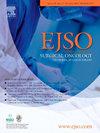术后物理治疗增强恢复途径:以结直肠研究为主的普外科证据更新。
IF 2.9
2区 医学
Q2 ONCOLOGY
引用次数: 0
摘要
物理治疗是增强康复方案的关键组成部分,特别是在启动早期活动和支持恢复功能独立方面。尽管如此,仍缺乏关于最佳运动后物理治疗策略的指导。本系统综述旨在综合和批判性评估关于普通外科患者术后物理治疗干预在增强恢复途径中的最新证据。本综述旨在促进科学理解,并为优化物理治疗实践提供指导,以增强恢复途径。材料和方法:对2000年至2024年间的文献进行了系统回顾,以确定遵循增强恢复方案的普通外科人群物理治疗干预的研究。结果:10项研究符合纳入标准。6项研究针对结直肠患者,1项研究(加上一项二次分析)针对根治性膀胱切除术患者,1项研究针对接受肿瘤切除术的头颈部患者,1项研究包括混合患者样本(结肠、直肠、胃、胰腺和肝脏手术)。包括早期物理治疗的干预措施被发现有利于术后步行距离、日常生活活动的实现和住院时间。对出院准备程度、康复措施质量和健康相关生活质量的影响证据不一。在住院病人满意度或功能结局方面没有观察到一致的影响。结论:本综述支持结构化物理治疗干预在增强康复方案中的可行性和潜在益处。这些结果突出了结构性动员干预措施在促进恢复方面的潜力,特别是在教育和基于技术的战略的支持下。本文章由计算机程序翻译,如有差异,请以英文原文为准。
Postoperative physiotherapy in enhanced recovery pathways: A general surgery evidence update, dominated by colorectal studies
Introduction
Physiotherapy is a pivotal component of enhanced recovery protocols, particularly in initiating early mobilisation and supporting the return to functional independence. Despite this, there is a lack of guidance on optimal post-mobilisation physiotherapy strategies. This systematic review aims to synthesise and critically appraise the most recent evidence on postoperative physiotherapy interventions within enhanced recovery pathways for general surgical patients. This review seeks to advance scientific understanding and provide guidance for the optimisation of physiotherapy practice within enhanced recovery pathways.
Materials and methods
A systematic review of the literature between 2000 and 2024 was conducted to identify studies of physiotherapy interventions in general surgical populations following an enhanced recovery protocol.
Results
Ten studies met the inclusion criteria. Six studies were conducted in colorectal patients, one study (plus a secondary analysis) was conducted in radical cystectomy patients, one in head and neck patients undergoing oncologic resection, and one included a mixed patient sample (colon, rectum, stomach, pancreas and liver surgery). Interventions involving early physiotherapy were found to benefit postoperative walking distance, achievement of activities of daily living and length of stay in hospital. There was mixed evidence for influence on readiness for discharge, quality of recovery measures and health-related quality of life. No consistent effects were observed for inpatient satisfaction or functional outcome.
Conclusion
This review supports the feasibility and potential benefits of a structured physiotherapy interventions within enhanced recovery protocols. These results highlight the potential for structured mobilisation interventions to enhance recovery, particularly when supported by education and technology-based strategies.
求助全文
通过发布文献求助,成功后即可免费获取论文全文。
去求助
来源期刊

Ejso
医学-外科
CiteScore
6.40
自引率
2.60%
发文量
1148
审稿时长
41 days
期刊介绍:
JSO - European Journal of Surgical Oncology ("the Journal of Cancer Surgery") is the Official Journal of the European Society of Surgical Oncology and BASO ~ the Association for Cancer Surgery.
The EJSO aims to advance surgical oncology research and practice through the publication of original research articles, review articles, editorials, debates and correspondence.
 求助内容:
求助内容: 应助结果提醒方式:
应助结果提醒方式:


